This post may contain affiliate links.
It’s mid-summer, and those annoying mosquitoes are getting out of control. Enjoying your outdoor patio or deck without them constantly buzzing and biting on you is almost impossible.
While you want to try several temporary mosquito repelling tactics, from sprays to burning candles, mosquito repelling plants can be placed around your yard to help minimize their presence.
By growing and placing these mosquito-repellent plants around your yard or home, the mosquitos will be repulsed by the strong smells, preventing them from going anywhere near your home.
Here’s a look at the best natural insect-repellent plants to help you get a grip on this mosquito problem and enjoy your outdoor space.

This post may contain affiliate links, which means I will earn a small commission if you purchase through my link. Please see the full disclosure and privacy policy for more information.
1. Peppermint

While many use peppermint for their morning tea or evening mojito cocktail, peppermint is believed to have mosquito-repelling effects. It has a powerful, strong, refreshing scent that mosquitoes dislike.
The strong scent may mask the mosquito’s ability to locate its targets, making it harder for them to find and bite you.
2. Lemon Balm

Lemon balm has a pleasant lemony scent that can create a beautiful aroma in your garden – but a very unpleasant scent for mosquitoes. This perennial can be grown in pots or directly in the ground, making it suitable for gardens of all sizes. Lemon balm can be invasive, so it’s best to plant it in a pot so it doesn’t overtake your herb garden.
3. Lavender
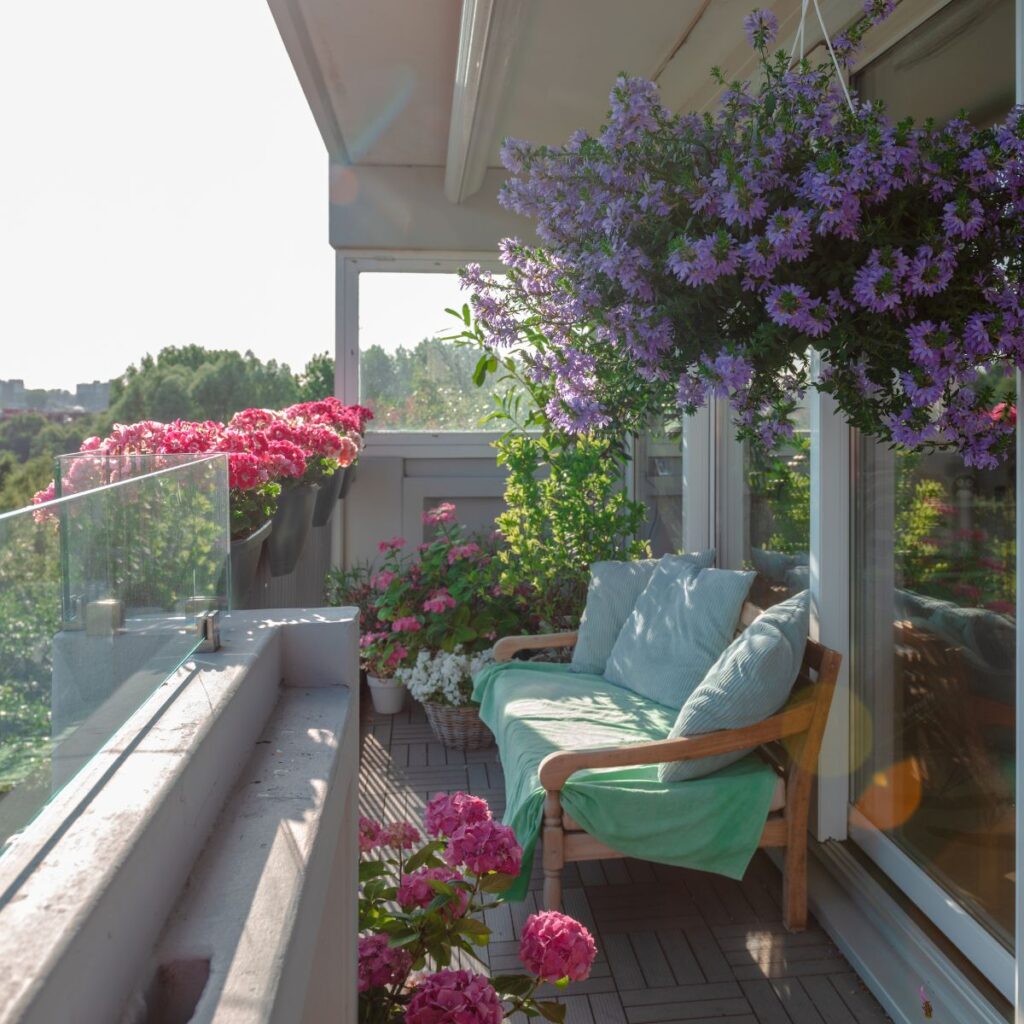
Lavender has a beautiful rich purple color with a comforting scent. Not only does lavender add beauty and fragrance to your garden, but it also acts as a natural mosquito repellent.
The strong aroma of lavender is highly disliked by mosquitoes and gnats, making it an effective deterrent. Lavender are common garden plants that thrive in a sunny spot and can be grown in pots.
4. Citronella Grass
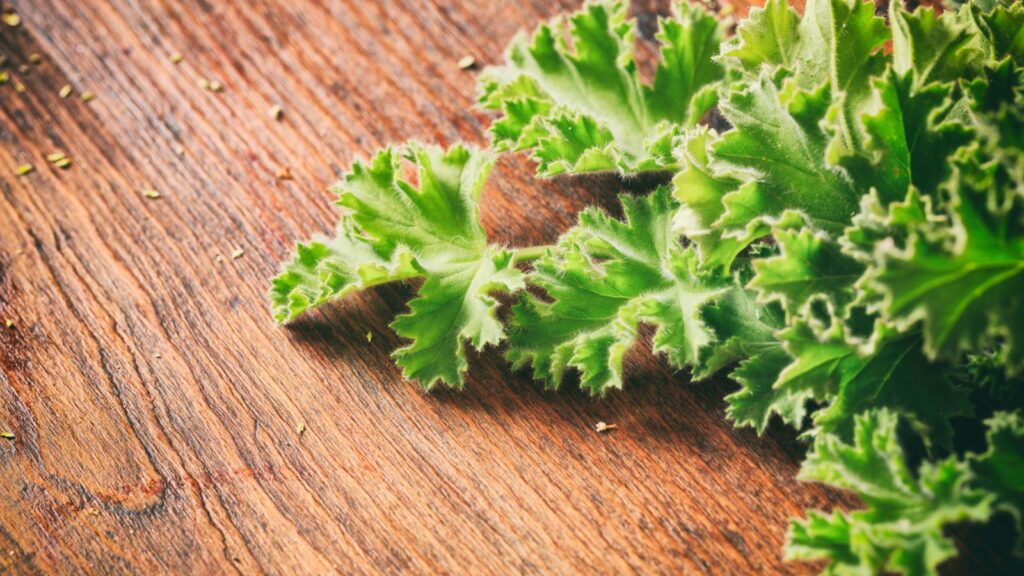
Citronella grass is likely the most popular type of mosquito repellent – most commonly used in candles and insect repellent products. And there is a good reason for this.
The essential oil extracted from citronella emits a strong citrus fragrance, which masks the scents that attract mosquitoes. By planting citronella in your garden, you can create a barrier that deters mosquitoes from entering your outdoor space.
5. Marigold
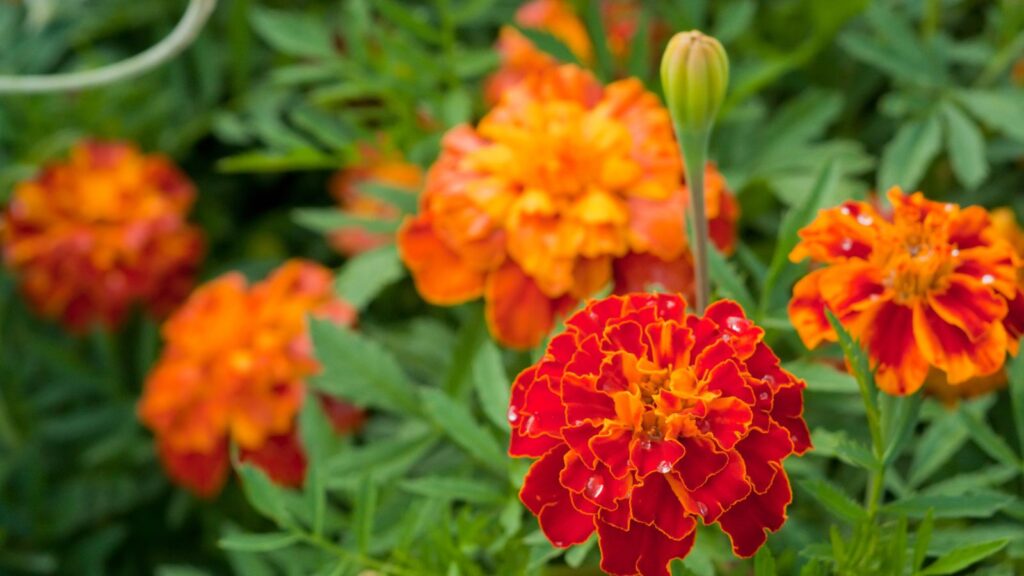
Marigold plants are bountiful, rich, colorful flowers that can repel mosquitoes. These hardy flowers are easy to grow and require full sun to bloom.
Whether you choose the classic orange and yellow marigolds or the more unique varieties, such as French marigolds, incorporating these flowers into your garden bed will beautify your space and help keep mosquitoes away – but butterflies and other insects will gravitate towards it.
6. Eucalyptus
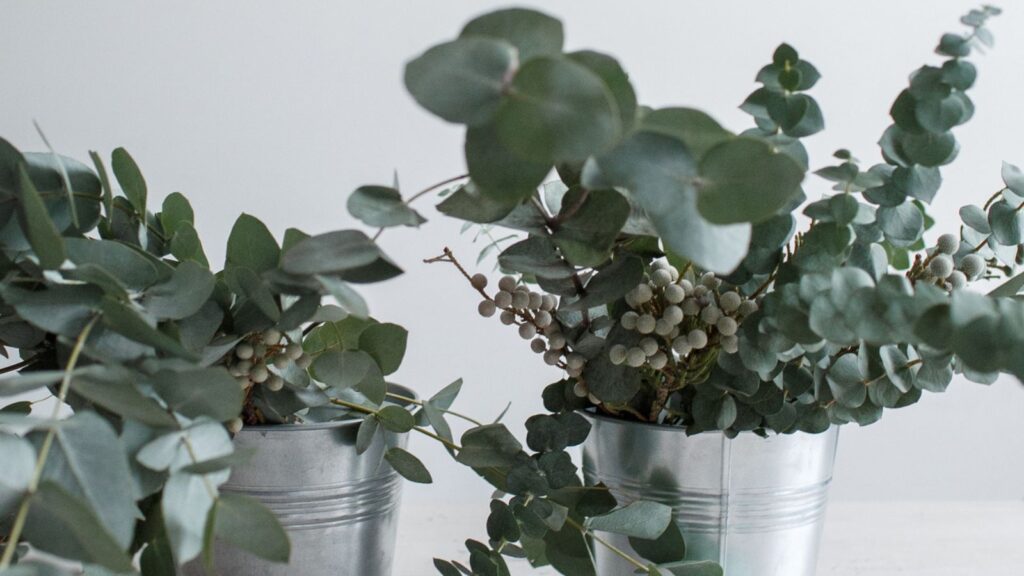
Eucalyptus plants have some of the most amazing scents, medicinal uses, and the ability to repel mosquitoes.
7. Floss Flower
Floss flowers are vibrant, making them perfect for any floral setting. Beyond its decorative purposes, it can also be used as a mosquito repellant. Floss flower produces a chemical compound called coumarin, commonly found in many commercial bug sprays.
8. Rosemary

Rosemary is a popular culinary herb that is not only great for cooking meals, but it also has a mosquito-repelling power. The strong fragrance of rosemary is a natural deterrent, keeping mosquitoes away from your garden.
Rosemary might be most effective when burned on a fire pit or grill, but you can also rub a few pieces against your skin for added protection.
Rosemary thrives in sunny locations with well-drained soil. By planting rosemary in your garden, you can enjoy its culinary uses and benefits while creating a mosquito-free environment.
9. Geranium
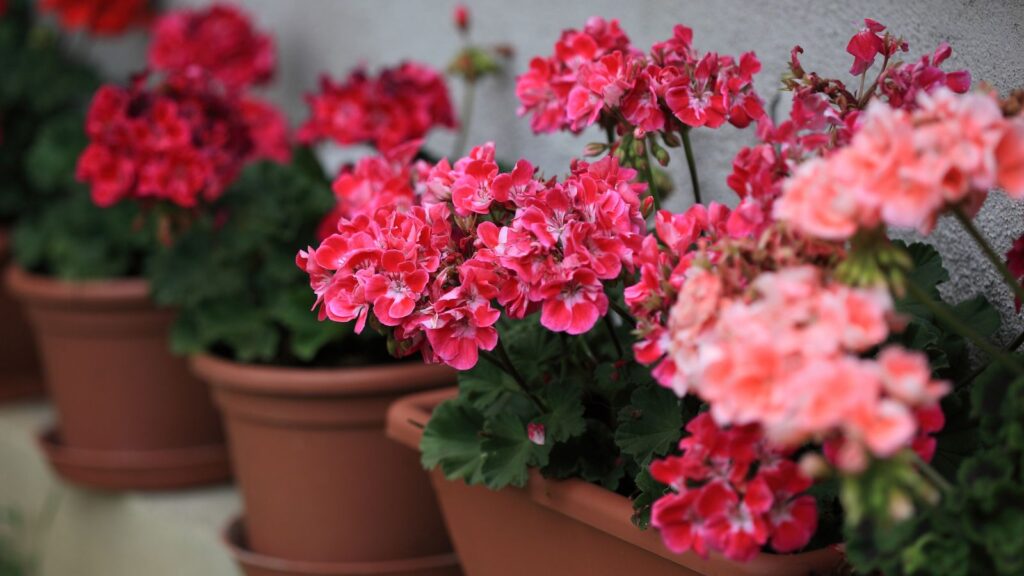
Geraniums are colorful flowering plants that add beauty to your garden and help repel mosquitoes. These plants produce a unique scent that mosquitoes find unpleasant, making them an effective natural deterrent. Geraniums are easy to care for and grow well in pots or in the garden.
Geraniums are most effective when crushed or rubbed against the skin as the geranium leaves emit chemical compounds that mosquitoes despise.
10. Catnip
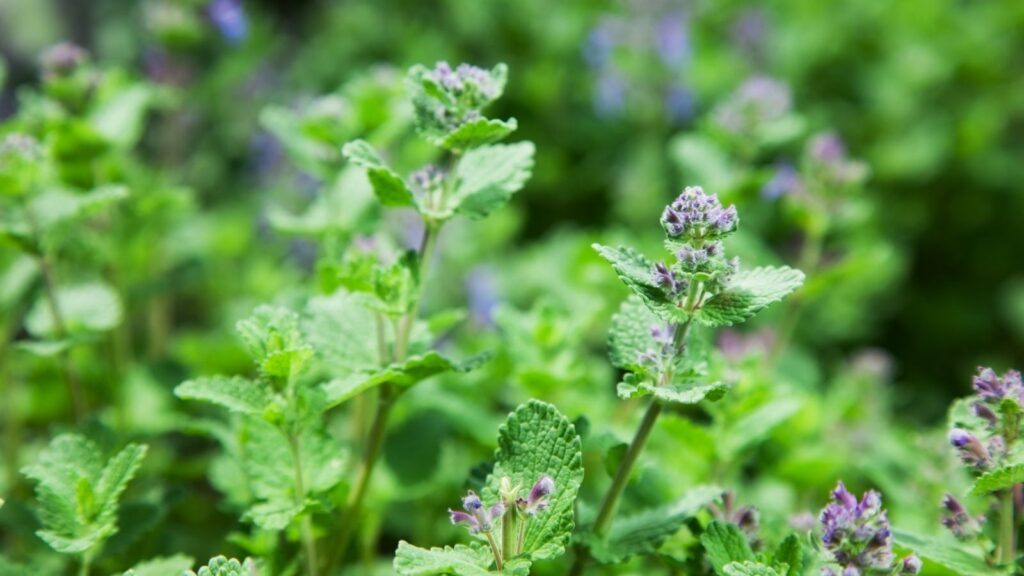
Mosquitoes despise the smell of catnip – thanks to a chemical called nepetalactone. This chemical is both a cat attractant and an insect repellant. While it is excellent for repelling mosquitoes, cats are attracted to it, so expect those neighborhood cats to find their way into your space. In addition, it can also be quite invasive to a garden bed.
11. Basil
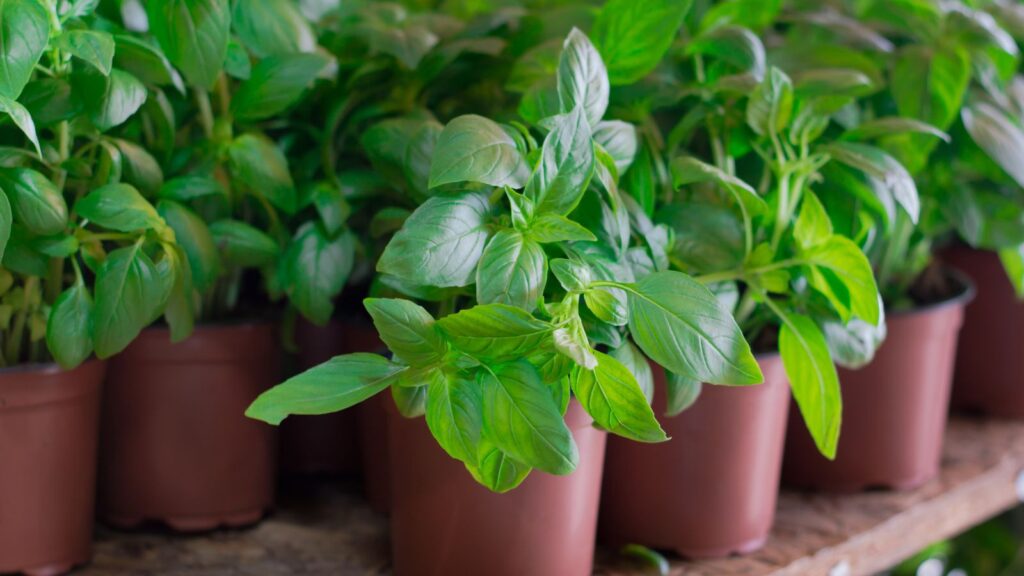
Like rosemary, basil plants are not only the perfect herb for cooking, but they are also efficient at repelling mosquitoes. Place this mosquito-repelling plant near the patio or deck or any other outdoor space where you spend the most time.
Its mosquito repelling properties will deter mosquitoes and insects from ever coming near it. Basil also harms mosquito larvae, so you can place it near stagnant water to deter mosquitoes from laying their eggs.
12. Sage
If you are a lover of Italian, then it is likely that you have sampled your fair share of sage. But did you know you can also use it as a mosquito repellant? It is most effective when burned in the area where mosquitoes are present. Alternatively, you can apply it to your skin as an essential oil.
13. Lemongrass
Lemongrass is known for its high citral content, which makes it an effective ingredient in mosquito repellants. While it is commonly used in many Thai meals and other culinary dishes due to its delicious flavor, this plant makes an excellent addition to your natural repellant garden.
14. Bee Balm
Bee balm, not to be confused with lemon balm, is a member of the mint family. This plant leaves behind a scent that mosquitoes loathe. Like Lemon Balm, it is a perennial herb that helps deter mosquitoes.
While it is great for discouraging mosquitoes, it is equally effective at attracting pollinators like butterflies, bees, and hummingbirds to your garden.
Do Mosquito-Repellent Plants Really Work?
There is no surefire way to completely eradicate mosquitoes from your yards, plants certainly help to reduce their presence and keep them at bay.
The powerful fragrances produced by certain mosquito-repellent plants can block the scent receptors that the bugs use to find you and the carbon dioxide you exhale. The more concentrated a plant’s scent is needed to throw the bugs off your trail, the better.
Other posts you might like:
- 14 Ways to Repel Mosquitoes and Enjoy the Outdoors
- How to Get Rid of Pesky Gnats in Plants
- How to Get Rid of Gnats Around the Home | Natural Methods
- 16 Attractive Patio Plants for Your Outdoor Space
While these plants won’t completely eliminate mosquitoes from entering your yard, they are an effective means and safeguard against mosquitoes.
Mix and match different varieties to create a diverse and visually appealing garden. Use mosquito-repelling plants like lavender and rosemary to complement each other’s scents, creating a more powerful mosquito deterrent when planted in close proximity. This will increase mosquito control’s effectiveness and add depth and variety to your outdoor space.
Tamara White is the creator and founder of The Thrifty Apartment, a home decor and DIY blog that focuses on affordable and budget-friendly home decorating ideas and projects. Tamara documents her home improvement journey, love of thrifting, tips for space optimization, and creating beautiful spaces.





